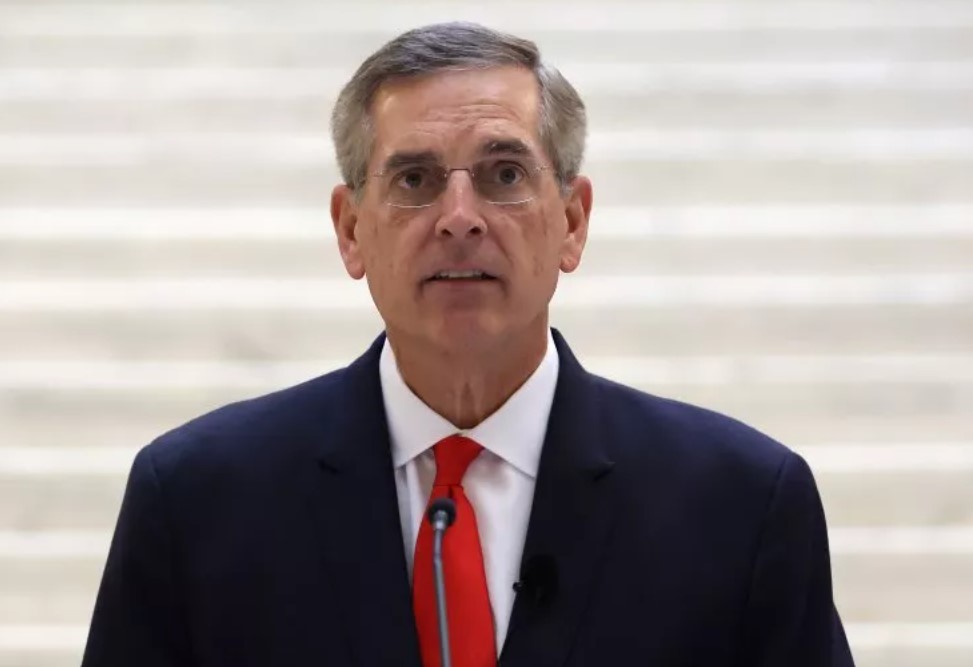The FBI has attributed a series of bomb threats at polling stations across the United States today to “Russian email domains.” In a statement, the agency said, “The FBI is aware of bomb threats to polling locations in several states, many of which appear to originate from Russian email domains. None of the threats have been determined to be credible thus far.”

Georgia Secretary of State Brad Raffensperger reported that multiple polling sites in his state had been targeted by similar bomb threats, which he said originated in Russia and were deemed not credible. “In the interest of public safety, you always check that out,” Raffensperger, a Republican, commented. He added, “They’re up to mischief, it seems. They don’t want us to have a smooth, fair, and accurate election.”
What We Know So Far
At a later press conference, Raffensperger confirmed that between five and seven precincts across multiple Georgia counties were affected. According to USA Today, he indicated that federal authorities were involved in tracking the threat, although he did not specify which agencies responded or how they identified the source as Russian.
Law enforcement addressed the threat on Tuesday morning, clearing polling locations. This incident comes on Election Day, where Vice President Kamala Harris, the Democratic presidential nominee, faces off against former President Donald Trump, the GOP nominee. Georgia, a pivotal battleground state, could play a critical role in the election outcome as both candidates aim to reach 270 Electoral College votes.
Newsweek has reached out to Raffensperger’s office for further comment.
Previous Incidents of Foreign Interference
Georgia has faced other instances of alleged Russian interference. Recently, the Office of the Director of National Intelligence, along with the FBI and the Cybersecurity and Infrastructure Security Agency, pointed to Russian operatives in connection with a viral video falsely depicting a Haitian immigrant claiming to have voted multiple times in Georgia. Raffensperger’s office labeled the video as “targeted disinformation” likely produced by “Russian troll farms.”
Russia was also implicated in a denial-of-service (DoS) cyberattack on Raffensperger’s office website on October 14. In response, his office added a security question to verify that visitors were human, which helped mitigate the attack.
These incidents follow a recent report from Microsoft, which warned that foreign adversaries—including Russia, China, and Iran—are intensifying efforts to interfere in the U.S. 2024 presidential election. Microsoft’s threat intelligence team noted an expansion of coordinated campaigns aimed at influencing public opinion and destabilizing the democratic process, a trend seen in past elections. Russia, China, and Iran have denied any intent to interfere with U.S. elections.
Despite these threats, U.S. officials have expressed confidence in the security of the nation’s election infrastructure, though they remain concerned about potential impacts on public opinion. Clint Watts, general manager of Microsoft’s Threat Analysis Center, emphasized the importance of vigilance, especially in the 48 hours around Election Day. “History has shown that foreign actors’ ability to quickly distribute deceptive content can significantly impact public perception and electoral outcomes,” Watts said.
While officials maintain that there is no indication of direct attacks on election infrastructure, intelligence sources caution that attempts to sway voter sentiment through online misinformation remain a substantial risk.